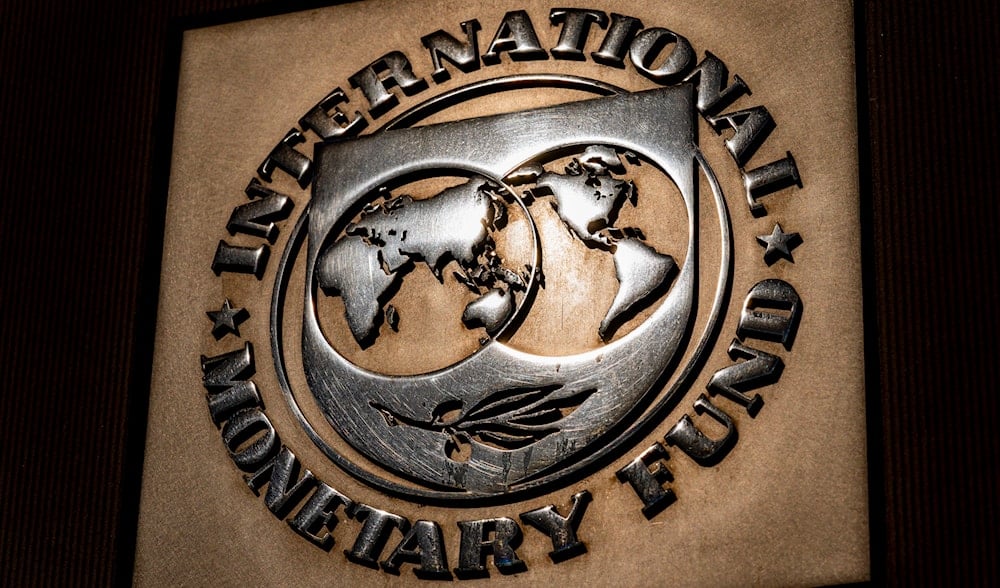IMF to issue $1.1bn to Pakistan after review of economic stabilization
The head of the IMF team in Pakistan, Nathan Porter, says that economic "growth is expected to be modest this year" as "inflation remains well above target".
-

The logo of the International Monetary Fund is visible on its building, April 5, 2021, in Washington. (AP)
Following a second review of Pakistan's compliance with the economic stabilization program under the Stand-By Arrangement (SBA), the International Monetary Fund (IMF) agreed to issue a new $1.1 billion package to Pakistan.
Back in July 2023, the IMF approved a 9-month SBA for $3 billion to support the country's economic stabilization program, with a disbursement of $1.2 billion.
In November, the IMF and Pakistani authorities agreed on the first review for the SBA, which was followed by the IMF disbursing $700 million, which strengthened the foreign exchange reserves of the Pakistani central bank.
The head of the IMF team in Pakistan, Nathan Porter, was quoted as saying in a statement, "The IMF team has reached a staff-level agreement with the Pakistani authorities on the second and final review of Pakistan’s stabilization program supported by the IMF’s US$3 billion ... This agreement is subject to approval by the IMF’s Executive Board, upon which the remaining access under the SBA, US$1.1 billion (SDR [Special Drawing Rights] 828 million), will become available."
He added, "Pakistan’s economic and financial position has improved" after the first review due to "prudent policy management and the resumption of inflows from multilateral and bilateral partners."
Read next: Hamas urges Pakistan to play active role in Gaza truce
Still, economic "growth is expected to be modest this year" as "inflation remains well above target," he continued.
The country's economy has been exacerbated by skyrocketing inflation, political instability, the global energy crisis, earthquakes, and the devastating floods that submerged large portions of the country in 2022.
The country's balance of payments crisis is one of the largest problems striking Pakistan, and causing major instability in the local currency's rate.
Islamabad earlier opposed abiding by the IMF's strict requirements on raising taxes and slashing subsidies.
Pakistan earlier entered a dangerous phase following the ousting and assassination attempt on the highly popular former Prime Minister Imran Khan, and his accusation that it was a plan by his successor Shehbaz Sharif and other governmental figures.
In 2019, Khan negotiated a loan package from the IMF, however, he failed to meet the demands on cutting subsidies and market direct intervention, which caused the issue to be stalled.

 3 Min Read
3 Min Read








